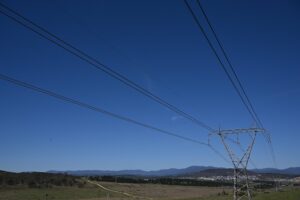As Australia’s major retailers and generators push back against the renewable energy target, and the carbon price is also unwound, some are also recognising that their business models will be quickly redundant unless they make some rapid changes.
Utilities admit the new technologies, particularly solar and storage, and the resulting “democratisation of energy” is changing the game. Not only can households and business generate their own energy on-site, they will soon have the ability to defect from the grid en masse. And save money.
“Two years ago “grid defection” had to be explained as a concept,” says UBS utilities analyst David Leitch. “Now every electricity business and player from generators, retailers, networks and regulators are adapting to a world where demand falls, customers can be competitors, network owners are generators and the only constant is change.”
Leitch says that for large players, this means one of two decisions – whether to resist …. or work out how to profit from the change.
At the conclusion of utilities conference held in Sydney by UBS last week, which heard from most of the major Australian and New Zealand listed utilities, Leitch suggested that Origin Energy appears to have decided to resist.
Energy Australia, once the loudest opponent of change, appears to have evolved with new management, is now starting to evolve. As is, Leitch suggests, Victorian network operator SP Ausnet. (it could be argued that other networks are further down the track, but many of these are not listed).
The new battlegrounds are the abolition of the carbon price and the proposal to remove or reduce the renewables energy target. But Leitch says victory in either will be short lived.
“Solar and renewables are the good guys and we are pretty sure they will be the winners in the long run,” Leitch concludes.
One of the highlights of the conference was a presentation by Adrian Merrick, the head of retail for Energy Australia, and the man charged with holding the business together in the face of the biggest change in technology in a more than a century.
Merrick introduced this fascinating graph (below), “Industry at inflection point. Reinvention is key”. Nothing better illustrates the position the utilities find themselves in.
 The key message is that usage is falling, solar parity has been reached, storage is coming and micro-grids are on their way – bypassing- or at least challenging – traditional network businesses.
The key message is that usage is falling, solar parity has been reached, storage is coming and micro-grids are on their way – bypassing- or at least challenging – traditional network businesses.
Merrick acknowledged that the years of steady growth in demand, limited competition and an apathetic customer base are over.
Consumers are responding to pricing, competition and competing technologies such as rooftop solar and wind, and retailers must reinvent themselves – particularly because the traditional “vertically integrated” model could be bypassed by new retailers offering energy solutions to consumers at the lowest price.
These solutions included sale and leaseback of solar to consumer, and battery storage – as has been trialled in New Zealand by Vector Energy.
As Leitch noted: “For the first time we saw a major retailer, and major coal generator acknowledging that maybe the old business model will not work in the future.”
And below are two graphs that explain why they should be worried. In the face of emerging competition from telcos, data companies, the Googles and Apples or the world, appliance makers and retailers, and specialist energy management companies, not to mention the vertically integrated solar plus storage companies like Solar City/Tesla, electricity utilities have an appalling public perception.
Merrick presented these two graphs (please click to enlarge) to the conference to highlight their plight. Electricity prices are a major issue, and established utilities have the lowest customer loyalty in the service industry, and the poorest customer advocacy in the retailer sector.
This has long been recognised, and the current campaign by the utilities to ditch renewable targets, with the sole purpose of protecting their generation assets, is not going down well. The campaigns by Greenpeace and Get Up, as well as those by The Climate Institute and the Australian Youth Climate Coalition have the potential to gain major traction. The poll supports that, and the utilities cannot afford to treat their customers as apathetic ratepayers. For some, however, it will be too late.
Leitch says it is clear that renewable energy – in the form of solar plus wind plus potentially storage has reached the point where it is now central to the thinking of most of retail and even network businesses, and it has moved from the planning department to the CEO’s office.
“Every business is developing a strategy of what to do about it,” he says. Or at least they should be.









